Transgender people ‘aren’t safe in Britain’
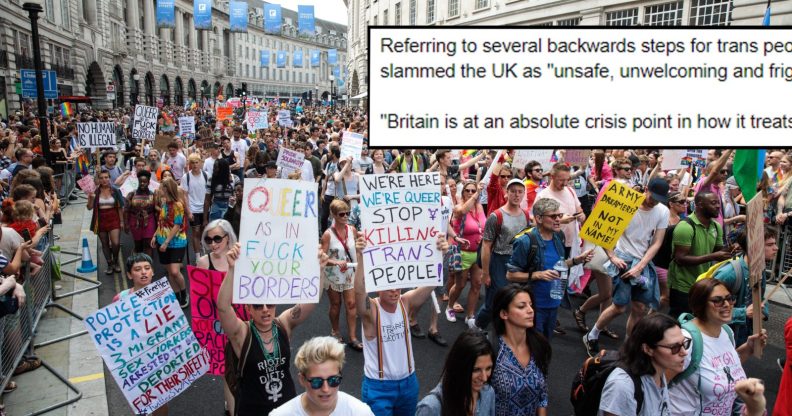
(Getty)
The chief executive of Stonewall has said the UK is unsafe for transgender people.
Referring to several backwards steps for trans people over the past year, Ruth Hunt slammed the UK as “unsafe, unwelcoming and frightening place for trans people”.
“Britain is at an absolute crisis point in how it treats trans people,” she said.
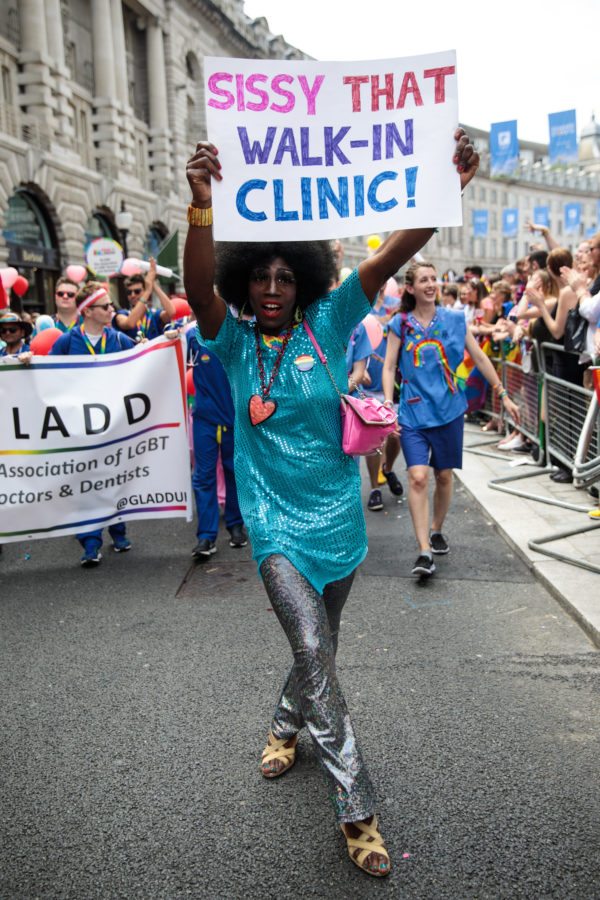
(Getty)
In a fiery HuffPost article, the LGBT charity’s CEO wrote that “Britain is no longer considered a safe part of the world for trans people to live in.
“We know from recent Stonewall research just how bad things are if you are trying to get on with your life as a trans person in Britain today.”
A Stonewall-backed study earlier this year found that more than four in every five trans schoolchildren have self-harmed.
And nearly half of trans kids have attempted suicide.
Hunt pointed to the fact that “in the last 12 months, two in five trans people have experienced a hate crime or incident.
“Every day, trans people continue to be mocked, excluded, bullied and attacked, simply for existing.”

Stonewall CEO Ruth Hunt
The leading activist also observed that other countries have condemned the UK’s approach to trans rights in recent times.
Earlier this month, a British trans woman was given asylum in New Zealand because of the persecution she faced in her home country.
The 57-year-old experienced violence and abuse and hid her identity from friends, family and colleagues.
Hunt said that “it should be considered a national embarrassment that this is where we now are as a nation.
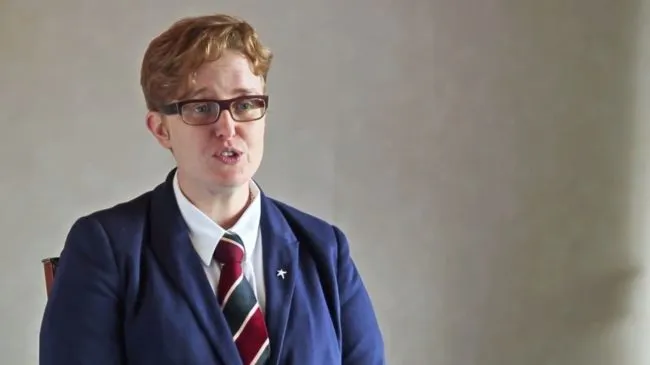
Stonewall CEO Ruth Hunt
“We simply cannot continue to call ourselves a world-leader in LGBT-inclusion, nor a beacon of equality for diverse communities.”
She also condemned the number of transphobic articles printed in national newspapers over the past few months.
Last month, The Daily Mail and The Times wrongly accused Action for Trans Health (ATH) of condoning violence against anti-trans activists.
The two outlets misreported that the trans group had called for violence in light of a fight between ATH activists and trans-exclusionary radical feminists in Speakers’ Corner last week.
Two weeks ago, The Sunday Times mocked transgender people with an offensive “birds and bees” cartoon.
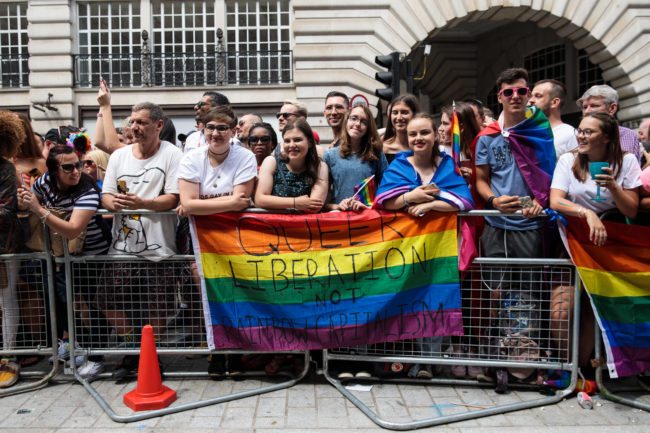
(Getty)
And in July, a Times article saying the government’s plans for reforming the Gender Recognition Act would harm children was slammed by activists including Mermaids CEO Susie Green.
Hunt wrote that “many mainstream media voices – from newspaper columnists to social media commentators – seem to have stepped up a gear over recent months in their attempts to make vile transphobia acceptable, questioning the right of trans people to even exist.
“This isn’t something that is open for debate. And giving the green light to these messages has devastating real-world consequences for trans people.”
She added that “many trans people feel unable to be themselves because of this treatment, whether at work, using public transport or even just shopping for groceries.”
And Hunt sounded the alarm on this issue.
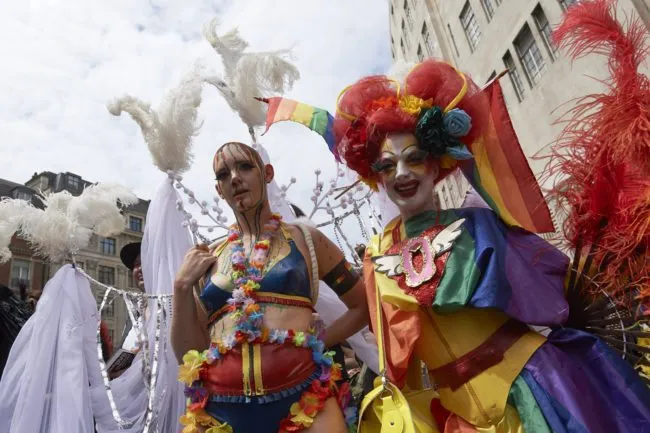
Members of the Lesbian, Gay, Bisexual and Transgender (LGBT) community take part in the annual Pride Parade in London on July 8, 2017. / AFP PHOTO / NIKLAS HALLE’N (Photo credit should read NIKLAS HALLE’N/AFP/Getty Images)
“Our nation is at a crossroads,” she said, “and now more than ever, we need allies to do the right thing and make trans equality their responsibility too.
“We all need to step up, be loud and visible in our support of the rights of trans people, whether that’s on social media, in the work canteen or at our local supermarket.
“The situation today is shameful. We need to work together to turn it around.”
Hunt has spoken to PinkNews about the ways in which Stonewall has failed trans people in the past.
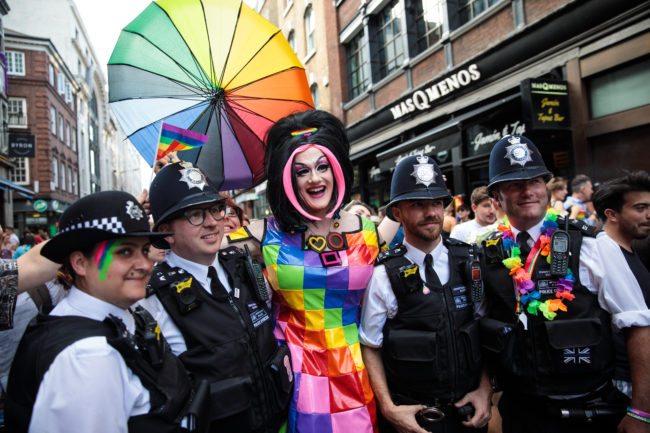
(Getty)
In 2015, six months into the job, Hunt admitted that Stonewall had “made a series of cock-ups, so it didn’t look like we were trying to support people, it looked like we were a bit crap.
“We invited speakers with a transphobic history; we nominated them for awards; we made a film for secondary schools which included the word “tranny”, unhelpfully.
“We were often in positions of privilege and opportunity with ministers where we could have talked about trans issues. By not doing, we were doing more harm.”

